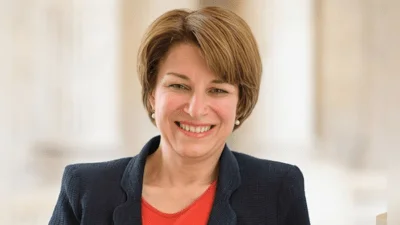Dear Mr. President:
We are writing in advance of the eighth round of U.S.-Korea Free Trade Agreement negotiations, to present the enclosed Congressional Proposal to Open Korea’s Automotive Market. This proposal reflects a pragmatic, trade-expanding, WTO-consistent approach that provides concrete, achievable positive incentives for Korea to open its automotive market and ensure the elimination of current and future non-tariff barriers in all industries. This proposal represents what we believe the United States needs to negotiate to achieve a satisfactory resolution to Korea’s closed automotive market. In addition, it is a proposal that should be welcomed by Korean consumers and by the Bush Administration because it will lead to a more competitive market in Korea with greater choice of products and more competitive prices.
We have developed this proposal out of our growing concern that these negotiations will fail to effectively tear down Korea’s non-tariff barriers, prevent Korea from using future non-tariff barriers to maintain its closed market indefinitely, and ensure access for imports to Korea’s automotive market. For decades, Korea has enjoyed open access to the U.S. auto market. At the same time, it has kept its own market virtually shut to foreign competition through the use of an import ban, followed by high tariffs, coupled with a complex and discriminatory tax regime, coupled with systemic, comprehensive and long-standing regulatory barriers, coupled with periodic anti-import campaigns by the Government of Korea.
The issue of our inability to break down long-standing and discriminatory barriers in a bicameral negotiation would seriously undermine our ability to address non-tariff barriers in the more comprehensive multilateral negotiations underway at the World Trade Organization. Given the importance of this issue, we have made consistent and repeated calls for the United States to undertake a new approach with Korea that addresses in a complete, comprehensive, and systemic way the long-standing policies by which Korea created and maintains a fundamentally closed automotive market. The U.S. automotive industry and union leadership also have called upon the Administration to take a new approach. To date, however, no new approach has been put forth that would lead to genuine market opening in Korea. Instead, we understand that the proposals which have been exchanged have been similar to the same ones that were tried repeatedly in the past and that have failed to achieve any meaningful access for U.S. products.
Our proposal moves beyond previous negotiating strategies and embarks on such a new approach that addresses the United States’ legitimate concerns that Korea will not obtain additional access to the U.S. market unless there is reciprocal opening of the Korean auto market. There are two key components to the Congressional proposal. The first part addresses the phase-out of the 2.5% U.S. passenger vehicle tariff and creates a positive incentive for Korea to open its market to U.S. autos. The second part addresses Korea’s current non-tariff barriers and creates a mechanism - available to all industries - for the United States to take action against future non-tariff barriers. A copy of the proposal is enclosed, as well as a briefing paper that summarizes its key elements.
The Korean automotive market presents a significant potential market for U.S. exports of cars and automotive products and would greatly benefit the U.S. automotive industry and the hundreds of thousands of workers it employs and supports. U.S. automotive manufacturers can compete effectively in an open and fair Korean auto market. We look forward to discussing how our proposal achieves a truly open market and more balanced automotive trade with Korea.
Sincerely,
The Honorable Charles B. Rangel The Honorable Carl Levin
Chairman, House Committee on Co-Chair, Senate Auto Caucus
Ways and Means
The Honorable Sander M. Levin The Honorable George V. Voinovich
Chairman, Subcommittee on Trade Co-Chair, Senate Auto Caucus
House Committee on Ways and Means
The Honorable John Dingell The Honorable Evan Bayh
Chairman, House Committee on Chairman, Senate Banking
Energy and Commerce Subcommittee on International
Trade, Finance, and Security
The Honorable Dale E. Kildee The Honorable Debbie Stabenow
Co-Chair, House Auto Caucus Member, Senate Committee on
Finance
The Honorable Ron Kind The Honorable Fred Upton
Member, House Committee on Co-Chair, House Auto Caucus
Education and the Workforce
The Honorable Ellen O. Tauscher The Honorable Joe Knollenberg
Chair Member, House Committee
New Democrat Coalition on Appropriations
The Honorable Candice S. Miller The Honorable Vernon J. Ehlers
Member, House Committee on Member, House Committee on
Armed Services Transportation and Infrastructure
The Honorable Thaddeus McCotter
Member, House Committee on
Budget and Foreign Affairs








